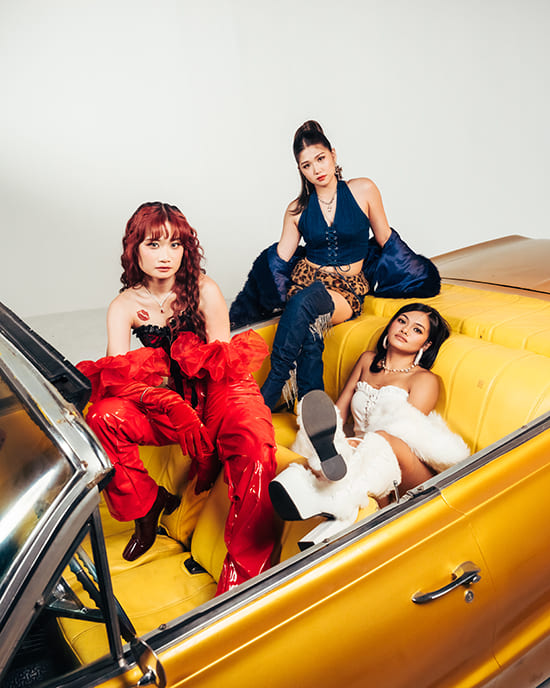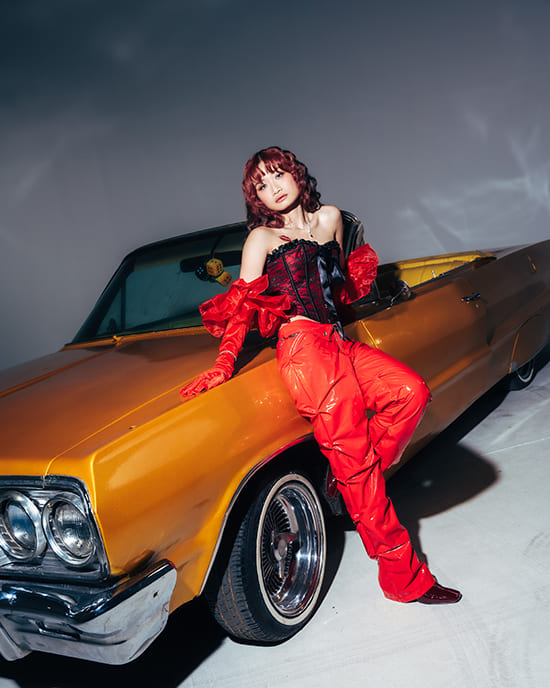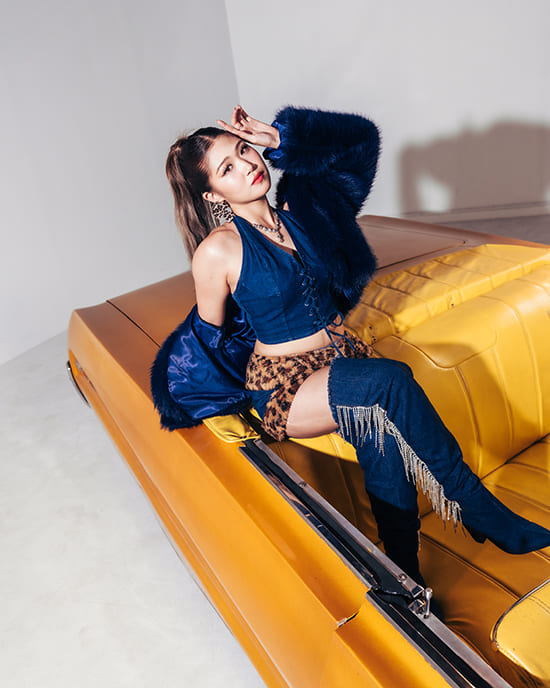After the trainee life, YARA charts its own path
The three-member girl group YARA has a whole lot of history in the P-pop industry.
Initially formed as a pre-debut girl group by SB19’s previous management company, ShowBT Philippines, members Gelou Villanueva (main dancer and lead vocalist), Rocher Joyce Villa (lead rapper), and Christa Abigael Lei (main rapper and lead dancer) decided to leave the company in 2018 on a mutual agreement. But their musical journey did not stop there.
Not long after, they joined the Korean Cultural Center in the Philippines’ Pinoy K-Pop Star and placed third in the performance category in 2019. In 2021, they gained new wings to fly higher as they rebranded themselves as YARA, which means “small butterfly” in Arabic, and became the first-ever grand winner of TV5’s POPinoy. The group eventually gained traction and released their pre-debut single, PARA, to celebrate the anniversary of their POPinoy win in 2022.
It was apparent from the jump that they have what it takes to etch their name in the rise of P-pop along the likes of BINI and G22. In March 2023, YARA signed with Sony Music Philippines, officially debuting with their single ADDA (Apat Dapat, Dapat Apat).
Almost a decade into their journey as a group, we sat down with Gelou, Rocher, and Christa to talk about pursuing music independently, undergoing K-pop training, and building a name for themselves in the Filipino music scene.

THE PHILIPPINE STAR: You met while training at ShowBT. What thoughts were running through your head when you decided to pursue YARA on your own?
YARA: We started training together at ShowBT back in 2016 and stayed until 2018. After we left, we all took a break and went back to (our) regular day jobs just to make ends meet. But that fire—the craving to perform and be on stage—never really left. Even if we didn’t know what would happen or if things would work out, we knew we couldn’t let go of what we loved doing. It was honestly scary. We had doubts, not about each other, but about whether life would align with the dream. Still, we chose to bet on ourselves. We didn’t have much, just our shared passion and the bond we built over the years, but that was enough to take the leap. Looking back, it was a bold move, but one we’ll always be proud of.
Was it hard finding your own identity as a group?
YARA: (It) definitely had its challenges. Coming from a dance cover background, we weren’t immediately sure who we wanted to be or how we should present ourselves. But as we went through experiences like the survival show, we started to discover what felt right. We gravitated toward hip-hop and the freedom it gave us on stage. That energy helped shape our direction.

At the same time, we’ve always stayed true to ourselves. We’re not the type to pretend or act like something we’re not. Our identity naturally unfolded as we kept doing what we genuinely love. Of course, with each of us having our own individuality, it took time to find that perfect balance where everyone felt seen and heard. But at the core of it all was our shared passion for performing, and that became the heart of who we are as YARA.
After ShowBT, you competed in Pinoy K-Pop Star and POPinoy. How did each of these experiences affect how you approach your work now?
YARA: Pinoy K-Pop Star was our first time competing as a group, and even though it was a dance cover contest, placing third gave us a sense of validation that maybe we really had something special. It pushed us to take things more seriously. More than anything, those experiences brought us closer and taught us how to function as a real team.

What part of your journey so far has surprised you?
YARA: Honestly, just being part of the industry is already a huge surprise for us. When we first joined competitions, we only knew how to dance. We didn’t have the vocal or rap skills yet to really call ourselves artists. Some of us even had personal challenges, like not having full support from family at the start, so we never imagined we’d make it this far.
You said previously that you have a clear vision of what you want to achieve; you just need to figure out the “how.” What was that vision, and what barriers did you face before you debuted?
YARA: From the beginning, we had a clear vision: to debut and make performing our career, not just for the sake of success but to create something meaningful. We wanted our music to be a source of hope and comfort, the same way the artists we looked up to helped us through our own struggles. We dreamed of releasing songs that could speak for people when they couldn’t find the words themselves; to be that quiet presence, that sense of companionship through music.
We’re not the type to pretend or act like something we’re not. Our identity naturally unfolded as we kept doing what we genuinely love.
We started with zero knowledge of how the industry actually works. There were moments where we were under management that didn’t align with our vision, so instead of building towards who we truly wanted to be as a group, we often just went along with whatever opportunities came, even if they didn’t reflect our identity.

On a personal level, one of the biggest barriers was self-doubt. There were fears about not being “enough,” constantly comparing ourselves to others, and wanting everything to be perfect before putting it out. But over time, we learned that being an artist is about being real, not being the best.
What do you think makes YARA different in the P-pop scene?
YARA: A mix of our music, individuality, and authenticity. Musically, we lean more toward a rap-focused style, which gives our sound a distinct edge. A lot of people recognize that as one of our signatures. On top of that, we’re not afraid to be real. What you see is what you get. We don’t put on a front or try to fit into a certain mold just to belong.
And then there’s our age range: some might see it as a disadvantage in a youth-driven industry, but we actually see it as a strength. It allows us to be more versatile, both in music and performance. We can go from light and fresh to bold and mature without it feeling out of place. That flexibility helps us connect with a wider audience, and we think that’s something special we bring to the table.


